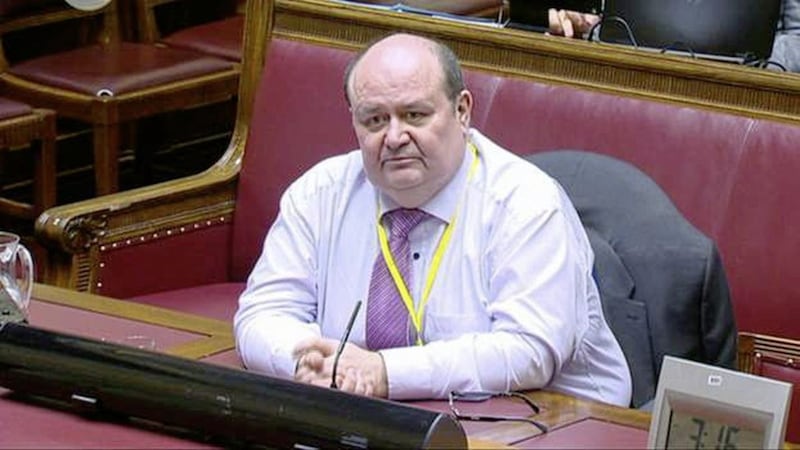A former senior official at the Stormont department which launched the Renewable Heat Incentive (RHI) has said he questioned whether it should have been running it.
The public inquiry into the disastrous energy scheme yesterday heard from Trevor Cooper, who was a finance director at the Department for Trade, Enterprise and Investment (DETI) and chaired an internal casework committee which assessed RHI.
Mr Cooper said he questioned whether the department should have been placed in charge of the scheme, claiming that Invest NI would have been a "natural home" given that it was an "expert delivery body".
He also said he queried whether Northern Ireland needed its own separate RHI scheme from Britain, although this point was not reflected in the minutes of the casework committee.
"The minutes are the minutes - I believe I did ask that question; in fact, I know I asked that question," he said.
Mr Cooper said that Fiona Hepper, then head of DETI's energy division, gave him "a lot of legal jargon" about why it was not possible to set a Northern Ireland tariff within the existing British scheme.
The inquiry heard that in 2010, Ms Hepper made a submission to then enterprise minister Arlene Foster about commissioning consultants to work on an economic appraisal.
Mr Cooper said there was a tendency to be copied in on emails, rather than having issues explicitly raised directly with relevant staff.
Panel member Dame Una O'Brien queried whether it would have been "normal" that someone would make a submission to the minister "without it having been approved by the finance team", while copying in others to "imply" that it had been seen by them.
Inquiry chair Sir Patrick Coghlin observed: "If things go wrong you are the first person to whom a finger is going to be pointed. It is not a good system."
Mr Cooper also said that a later document submitted to the minister in November 2011 "wasn't accurate" in outlining financial arrangements for the scheme including potential penalties for overspending.
About a month after the RHI scheme went live, the regulator Ofgem informed DETI that estimated costs would increase by about £700,000 over four years.
Mr Cooper said he was "very unhappy" about this rise, and that he "wanted to take a look at it again" but was effectively over-ruled.
"If you have a material change in the project it should go back to the casework committee," he said.
The senior civil servant said details about funding arrangements and plans in the event of overspending "weren't clarified and they should have been".
"What I understood was that there would be regular reviews of the scheme. The scheme had a big red button to stop it... we were told it. I know I asked lots of questions... they are not all in the minutes," he said.
Sir Patrick Coghlin said he had "great difficulty" in understanding how "nobody" had asked for further details on how the "big red button" would work in practice.
"If people have received accreditation then they are entitled to be paid. I have got great difficulty in understanding how nobody said: how are we going to stop this mid-year?" he said.
"There were simply not enough people and not enough appropriately experienced people to run this scheme."








